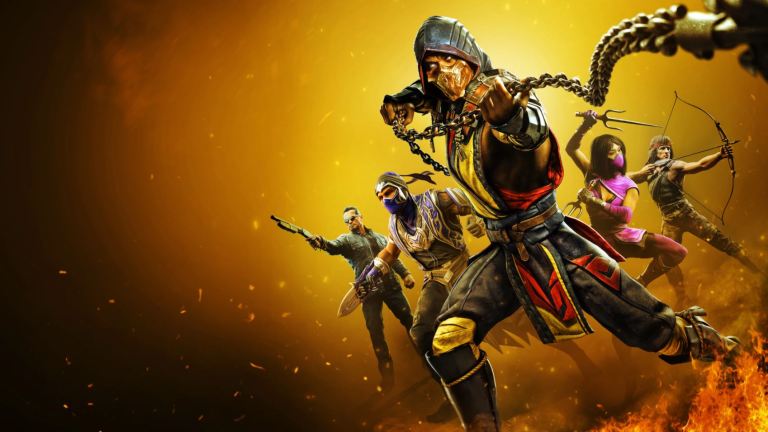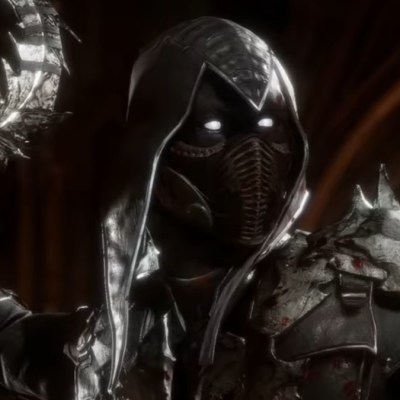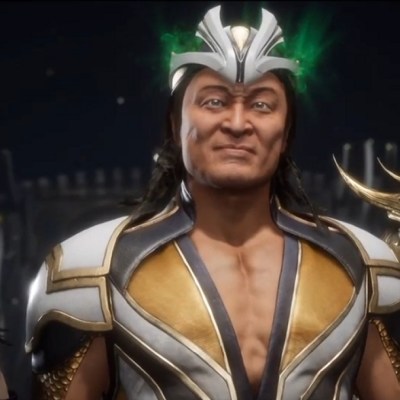How Mortal Kombat Became the Best Selling Fighting Game Franchise Ever
As Mortal Kombat becomes the king of fighters, we take a look at how the legendary franchise got to this point.

WB Games recently confirmed that Mortal Kombat 11 has sold over 12 million copies worldwide so far. That means that the Mortal Kombat franchise has sold more than 73 million games to date, which, as some analysts have already pointed out, also means that it now appears to be the best-selling fighting game franchise ever.
While WB has confirmed the lifetime sales of the Mortal Kombat franchise to date, it should be noted that some of the other current sales figures for the other major fighting game franchises are either estimates or are based on reports that haven’t been updated quite as recently. Having said that, it certainly appears that Mortal Kombat is now the best-selling fighting game franchise ever, which is even more impressive when you consider that it was nowhere close to dethroning Super Smash Bros. for that honor prior to the release of Mortal Kombat X and Mortal Kombat 11.
So how did we get to this point? Well, the success of the Mortal Kombat franchise isn’t a sudden thing nor is it one of those sales records that somehow make us question the direction of the video game industry or the tastes of gamers. No, Mortal Kombat‘s success can instead be attributed to a series of factors that highlight just what an incredible job its various developers have done over the years and the unique place this series has in the industry, video game culture, and certainly in the hearts of fighting game fans everywhere.
The Enduring Novelty of Mortal Kombat’s Violence
Look, you probably don’t need a complete rundown of how the original Mortal Kombat‘s violence helped set it apart. At a time when violent video games were still a novelty, Mortal Kombat offered one of the most celebratory violent gaming experiences the world had ever seen up until that point. It triggered Congressional hearings, protests, lawsuits, and, most importantly for our current purposes, an incredibly successful fighting game franchise.
What doesn’t get talked about quite as much, though, is how Mortal Kombat‘s violence has remained something of a novelty even as the idea of violent video games becomes much more common. See, there was a specific era of video games in which developers were trying to use violence/extreme content to court controversy for their games (Rockstar’s excellent Manhunt is one of the better examples of that era). It was kind of like the torture porn era for major horror movies. We experienced it, the fad burned out, and many of us left a little more numb to the idea of extreme violence as a draw. More and more game studios dialed back on the idea of implementing such incredible levels of violence, not necessarily on moral grounds, but because it slowly became less of a hook/novelty.
Mortal Kombat is different. The franchise could go toe-to-toe with most of the most violent video games released over the last 30 years or so from a pure content perspective, but Mortal Kombat‘s violence has always been…fun. It’s less of a torture porn scenario where violence is meant to disturb and test you and more like an ’80s slasher where the violence is so cartoonish and over-the-top that it’s often hard to take it seriously. It’s all about having fun, which is still a novelty compared to toned-down violence, violence as biting (sometimes hard to process) social commentary, or violence that is trying too hard to be controversial.
Mortal Kombat Is One of the Most “Accessible” Fighting Game Franchises
Talking about “accessibility” in fighting games is always tough. It’s a topic that draws gatekeepers who look down on the very concept of accessibility in gaming as well as those who think they’re defending a game by arguing it’s not really that accessible from a mechanical standpoint.
When we talk about Mortal Kombat‘s accessibility, though, it’s only as a positive. In fact, it’s not just about the game’s mechanics. Yes, the original Mortal Kombat games were perhaps “simpler” than something like Street Fighter, but as the series grew, it certainly adopted more complicated gameplay systems that elevated it in the eyes of some genre purists. I’d argue that modern Mortal Kombat games boast better pick-up and play credentials than some of its genre competitors, but you’re obviously not going to convince anyone who believes that is an inherently bad thing that it’s actually a very impressive quality.
No, the real magic of Mortal Kombat‘s accessibility is how the franchise’s various developers and designers over the years have maintained this aura of approachability that the series boasts to this day even as it has become a much deeper fighting game series. As we noted above, Mortal Kombat feels more fun than intimidating in a way that even some of the best fighting game franchises can’t equal. As we’ll look at below, a lot of the ways the Mortal Kombat teams over the years have achieved and maintained that image can be attributed to the elements of their games that they’ve intelligently chosen to emphasize over their closest competitors.
Mortal Kombat is More Satisfying to a Much Wider Audience
You could maybe label this idea under “accessibility,” but it’s actually a slightly different point that proves to be very important when you’re trying to comprehend the incredible staying power of the Mortal Kombat franchise after all these years. “Accessibility” is what can help get gamers in the door and form their first impressions. What matters from there is how those players feel once they start spending time with the game, and that’s where Mortal Kombat really pulls ahead of some other notable fighting game franchises.
See, whether you play on the easiest difficulty setting and enable one-button fatalities or choose to master every combo and character, Mortal Kombat is really all about performing over-the-top moves with over-the-top characters in over-the-top environments while enjoying a, you guessed it, over-the-top story. That’s the core of the Mortal Kombat experience, and it’s the big reason why you’d ever bother to play one of these games.
You can enjoy the “core” Mortal Kombat experience no matter how good you are at the game. More experienced players can enjoy an evolved form of that experience that grows as they do, but the fundamental appeal of this franchise doesn’t demand a certain level of commitment. Ironically enough, that’s often what inspires a wider audience to spend more time with it in the first place.
Mortal Kombat’s Story, Characters, and World Give it a Personality That Many Other Fighting Games Don’t Have
Again, there’s no point in arguing that Mortal Kombat features better characters, stories, and world-building than Street Fighter, Guilty Gear, Tekken, or any of the other greatest fighting game franchises. That’s obviously a subjective argument.
What’s a little easier to objectively argue is the idea that the Mortal Kombat team has chosen to emphasize those elements more than other fighting games traditionally have. Mortal Kombat initially distinguished itself from Street Fighter 2 by offering a more cinematic (and obviously violent) gaming experience, and while you can still debate about which of those games were better, that kind of experience simply reached an audience that included many who would have otherwise never paid attention to a fighting game.
Over the years, Mortal Kombat developers from various studios have stuck with what brought the franchise to the dance, so far as emphasizing those personality-based elements go. It hasn’t always been perfect, but the fairly recent decision to turn Mortal Kombat‘s campaigns into this kind of cinematic universe has only helped ensure that more people continue to follow this franchise if only to watch what happens next. The Mortal Kombat franchise slowly forced other fighters to follow in its footsteps, and it honestly still does those “cinematic” elements better, or as good, as anyone else.
Mortal Kombat Constantly Reinvents Itself
Look, the Mortal Kombat franchise is far from perfect. In fact, I think you’ll find that other fighting game franchises may just be better on an installment by installment basis. There have certainly been Mortal Kombat games that have been cleanly outsold by their competitors over the years.
Yet, that strangely makes Mortal Kombat‘s success all the more impressive. When Mortal Kombat 4 made people question whether or not the novelty of the series had passed, the Mortal Kombat team decided to drastically change their design philosophy with the release of the surprising (and successful) Mortal Kombat: Deadly Alliance. That approach was still commercially viable by the time that Mortal Kombat: Armageddon was released, but in response to criticisms that things were starting to get a bit stale, NetherRealm Studios boldly decided to blow everything up again with 2011’s brilliant Mortal Kombat reboot.
There are few other franchises in all of gaming that have been this consistently committed to keeping things fresh even at times when “more of the same” would have been enough for many. You can point to a lot of factors that have contributed to Mortal Kombat‘s incredible success over the years, but let’s not forget that at the heart of it all are some really good games.


